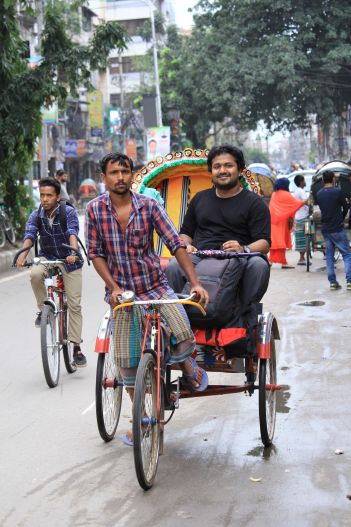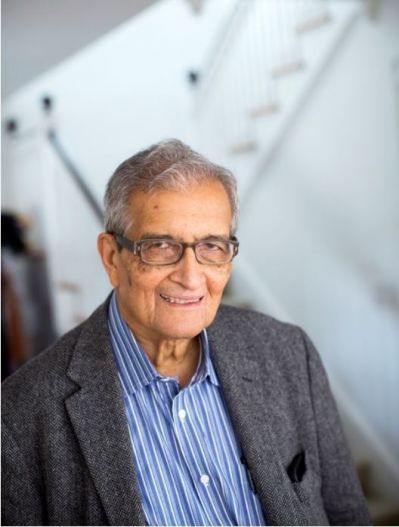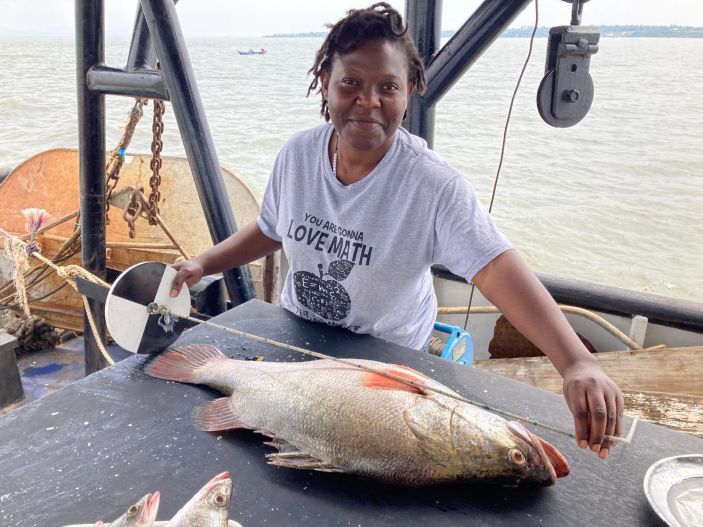South Asia Program
Bartels Lecture: Nobel Laureate Amartya Sen (video)

Attacks on Democracy
Video (May 5): World-renowned economist and philosopher joined Cornell students and faculty for Einaudi's annual Bartels World Affairs Lecture.
Additional Information
US Lifts Vietnam, Switzerland from Currency Manipulator List

Eswar Prasad, SAP
“This will help rebuild some of the credibility of the report so it will serve a useful purpose when it is truly needed in the future to highlight unfair currency management practices of other countries,” says Eswar Prasad, professor of economics and trade policy.
Additional Information
Swati Chattopadhyay: Ephemeral by Design

April 28, 2021
5:15 pm
Virtual
Swati Chattopadhyay is a professor in the Department of History of Art and Architecture, and an affiliated faculty in the Department of Comparative Literature at the University of California–Santa Barbara. An architect and architectural historian, she specializes in modern architecture and urbanism, and the cultural landscape of the British empire.
She is the author of Representing Calcutta: Modernity, Nationalism, and the Colonial Uncanny (2005); Unlearning the City: Infrastructure in a New Optical Field (2012); and the coeditor with Jeremy White of City Halls and Civic Materialism: Towards a Global History of Urban Public Space (2014), and Routledge Companion to Critical Approaches to Contemporary Architecture (2019). Her current work includes two digital humanities projects, Mapping the Ephemeral, and Bookscapes. Her forthcoming book is titled, A Geography of Small Spaces.
Her awards include fellowships from the Guggenheim Foundation, American Institute of Indian Studies, Birkbeck Institute for the Humanities, J. Paul Getty Foundation, Swedish Collegium for Advanced Study, National Science Foundation, and a distinguished visiting fellowship from Queen Mary University of London. She has served as a director of the Subaltern-Popular Workshop, a University of California Multicampus Research Group, and as the editor of the Journal of the Society of Architectural Historians. In 2018 she was named a fellow of the Society of Architectural Historians for a lifetime of significant contribution to the field. She is a founding editor of PLATFORM.
Introduction by Esra Akcan
Please register here for the lecture.
Additional Information
Program
Einaudi Center for International Studies
South Asia Program
China's Economy Is Roaring Back, A Year After Coronavirus Shutdown

Eswar Prasad, SAP
"China is yet again shaping up to be the global economy's bulwark against economic collapse, much the same as in the aftermath of the global financial crisis," says Eswar Prasad, professor of economics and international trade policy.
Additional Information
China Puts Limits on Foreign Banks, Worrying Businesses

Eswar Prasad, SAP
Eswar Prasad, professor of economics and trade policy, predicts that China will eventually resume opening up to foreign financial institutions. Prasad is also quoted in the Associated Press about the Eastern Caribbean dollar going digital.
Additional Information
Lessons From the Economics Success of Bangladesh

Kaushik Basu, SAP
Kaushik Basu, professor of applied economics and policy, writes this opinion piece about the lessons that can be learned from the economic success of Bangladesh.
Additional Information
Rejecting the Notion of Race

Global Public Voices Fellows in Medium
Karim-Aly Kassam and Frederick R. McDonald: Indigenous concept of personhood offers powerful pathways for action.
Additional Information
Amartya Sen to give Bartels World Affairs Lecture: Attacks on Democracy
Wednesday, May 5 at 4:30 pm EDT
Nobel prize–winning economist Amartya Sen joins Cornell’s Kaushik Basu for the 2021 Bartels World Affairs Lecture, hosted by the Mario Einaudi Center for International Studies.
At the turn of the millennium, many would have said that understanding the need for democracy was the most important change in the world over the preceding century. Yet in the past 20 years, democracy has been treated with contempt and hostility in many parts of the world—including countries in the West (such as Hungary, Poland, and others), but also elsewhere.
It is important to ask why this is happening and how we should deal with it, Sen advises.
“Some countries seem to be undergoing a big transition in this respect, and my own country, India, may be a significant example—despite its being often described as the largest democracy in the world, which in some sense it still is,” Sen said. “As someone who is dismayed by recent developments, I would like to discuss the nature of the problems we may be facing and what can be done about them.”
Sen’s talk, “Attacks on Democracy,” will kick off a discussion with Cornell faculty and students moderated by Basu. Three faculty commentators and audience members, including several students, will join Sen for conversation and Q&A on democratic challenges—and ways forward. The event is part of the Einaudi Center’s democratic resilience global research theme.
Amartya Sen is Thomas W. Lamont University Professor and professor of economics and philosophy at Harvard University. He has served as president of the Econometric Society, American Economic Association, Indian Economic Association, and International Economic Association. Translated into more than 40 languages, Sen’s books include Collective Choice and Social Welfare (1970, 2017), Development as Freedom (1999), Identity and Violence (2006), and The Idea of Justice (2009). Sen’s awards include the Bharat Ratna (India); Commandeur de la Legion d'Honneur (France); National Humanities Medal, George Marshall Award, and Eisenhower Medal (USA); Honorary Companion of Honour and Edinburgh Medal (UK); Ordem do Merito Cientifico (Brazil); Aztec Eagle (Mexico); and the Nobel Prize in Economics.
Moderator:
Kaushik Basu is the Carl Marks Professor of International Studies, professor of economics in the College of Arts and Sciences, and former senior vice president and chief economist of the World Bank.
Faculty Commentators:
Robert Hockett, Edward Cornell Professor of Law, Cornell University
Marco Battaglini, Edward H. Meyer Professor of Economics, Cornell University
Rachana Kamtekar, Professor of Philosophy, Cornell University
The Bartels World Affairs Lecture was established in 1984 to foster a broadened worldview among Cornell students, especially undergraduates. The lecture and related events are made possible by the generosity of Henry E. Bartels ’48 and Nancy Horton Bartels ’48.
Additional Information
Amartya Sen: Attacks on Democracy (Bartels World Affairs Lecture)

May 5, 2021
4:30 pm
Nobel prize–winning economist Amartya Sen joins Cornell’s Kaushik Basu for the 2021 Bartels World Affairs Lecture, hosted by the Mario Einaudi Center for International Studies.
At the turn of the millennium, many would have said that understanding the need for democracy was the most important change in the world over the preceding century. Yet in the past 20 years, democracy has been treated with contempt and hostility in many parts of the world—including countries in the West (such as Hungary, Poland, and others), but also elsewhere.
It is important to ask why this is happening and how we should deal with it, Sen advises.
“Some countries seem to be undergoing a big transition in this respect, and my own country, India, may be a significant example—despite its being often described as the largest democracy in the world, which in some sense it still is,” Sen said. “As someone who is dismayed by recent developments, I would like to discuss the nature of the problems we may be facing and what can be done about them.”
Sen’s talk, “Attacks on Democracy,” will kick off a discussion with Cornell faculty and students moderated by Basu. Three faculty commentators and audience members, including several students, will join Sen for conversation and Q&A on democratic challenges—and ways forward. The event is part of the Einaudi Center’s democratic resilience global research theme.
Amartya Sen is Thomas W. Lamont University Professor and professor of economics and philosophy at Harvard University. He has served as president of the Econometric Society, American Economic Association, Indian Economic Association, and International Economic Association. Translated into more than 40 languages, Sen’s books include Collective Choice and Social Welfare (1970, 2017), Development as Freedom (1999), Identity and Violence (2006), and The Idea of Justice (2009). Sen’s awards include the Bharat Ratna (India); Commandeur de la Legion d'Honneur (France); National Humanities Medal, George Marshall Award, and Eisenhower Medal (USA); Bodley Medal and Edinburgh Medal (UK); Ordem do Merito Cientifico (Brazil); Aztec Eagle (Mexico); and the Nobel Prize in Economics.
Moderator:
Kaushik Basu is the Carl Marks Professor of International Studies, professor of economics in the College of Arts and Sciences, and former senior vice president and chief economist of the World Bank.
Faculty Commentators:
Robert Hockett, Edward Cornell Professor of Law, Cornell University
Marco Battaglini, Edward H. Meyer Professor of Economics, Cornell University
Rachana Kamtekar, Professor of Philosophy, Cornell University
The Bartels World Affairs Lecture was established in 1984 to foster a broadened worldview among Cornell students, especially undergraduates. The lecture and related events are made possible by the generosity of Henry E. Bartels ’48 and Nancy Horton Bartels ’48.
***
Our hearts are with Cornellians currently in India and South Asia, or with family or friends in the region, during the COVID-19 tragedy. Consider supporting this aid effort led by South Asian students, including Cornellians.
Additional Information
Program
Einaudi Center for International Studies
Southeast Asia Program
Reppy Institute for Peace and Conflict Studies
East Asia Program
Latin American and Caribbean Studies
Institute for African Development
Institute for European Studies
South Asia Program
Global PhD Research Awards

Details
Conduct your international field research with a $10,000 award to support fieldwork expenses.
The Einaudi Center’s Amit Bhatia ’01 Global PhD Research Awards fund international fieldwork to help Cornell students complete their dissertations. Through a generous gift from Amit Bhatia, this funding opportunity annually supports at least six PhD students who have passed the A exam. Recipients hold the title of Amit Bhatia ’01 Global PhD Research Scholars. Meet the scholars.
All disciplines and research topics are welcome. Please indicate in your application if your project aligns with one of the Einaudi Center's global research priorities or one of our regional and thematic programs.
Eligibility
Cornell graduate students who have passed the A exam and been admitted to candidacy are eligible to apply. International fieldwork must be a critical component of your dissertation research. You must commit to travel abroad to conduct fieldwork for 9–12 months.
Please note that this award is meant to be supplementary to your primary funding source. This award does not provide tuition credit and requires students to be in absentia. A report is required upon completion.
Amount
$10,000, to be used before the end of the sixth PhD year. The award can cover the following expenses:
- International travel (economy airfare, visa fees)
- Domestic travel within the fieldwork country
- Accommodation and living expenses
- Research expenses (permits, translation costs, internet, archive access, survey costs, lab fees, etc.)
We encourage you to apply for other Cornell and external funding to complement this award, but please note that you are not eligible to apply for Einaudi’s travel grants. If you have already received a travel grant and wish to apply for a Global PhD Research Award, you may return your travel grant if you receive this award.
Please note that you may only bill for a research expense once. If an expense is already covered by this award or a Graduate School research travel grant, you may not use other Cornell or external grants to pay the same expense.
International Travel Approval
All international travel must be registered with the Cornell International Travel Registry. In line with Cornell’s international travel policy, selected students who plan to travel to a country flagged by the US Department of State as a "Level 4: Do not travel," or by the CDC as Level 4 "Special Circumstances," must get their travel plans reviewed and approved via a petition process by the International Travel Advisory & Response Team (ITART). ITART petitions are triggered by rules built into the Travel Registry, so if selected students’ travel requires a petition, the Travel Registry will prompt them for additional information about, and a rationale for, their elevated risk travel plans.
Please be aware that regardless of your destination, approval may be withdrawn if there is a change in the risk level of your destination or if we find that you have violated any contingencies of approval given. In such instances, you will be required to refund the award.
To receive the award, selected students must follow the university’s guidelines to petition for permission to travel internationally, to be submitted no earlier than six weeks and at least two weeks before the scheduled travel. In addition, students must participate in a short, online international travel predeparture orientation course designed by the university’s International Health & Safety team in order to receive travel approval.
Deadline
Applications, recommendation letters, and transcripts are due Friday, March 7, 2025 (11:59 p.m. ET).
How to Apply
Please order your official electronic transcript through the Office of the Registrar (see below); do not send your transcript directly. In the application, you will be asked to provide the following:
- Official electronic transcript (send to programs@einaudi.cornell.edu)
- Abstract of your dissertation project (maximum 150 words)
- Introduction to your dissertation project (maximum 400 words)
- Statement explaining the contribution of your research to existing literature and its relevance to advancing the human condition, planetary sustainability, or other impacts (maximum 400 words)
- Statement about publications that have most significantly informed your research (maximum 100 words)
- Statement explaining your plans for international field research (maximum 600 words)
- International field research budget information
- NetID email address of your recommender (your graduate thesis advisor)
FAQ
More Questions?
Join us for an upcoming information session.
Please email our academic programming staff if you have additional questions about the program or your application.
